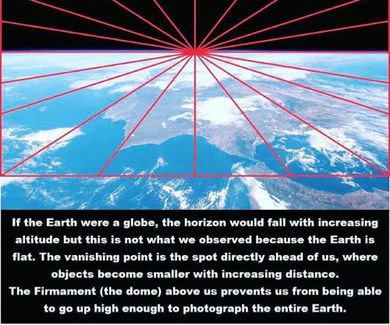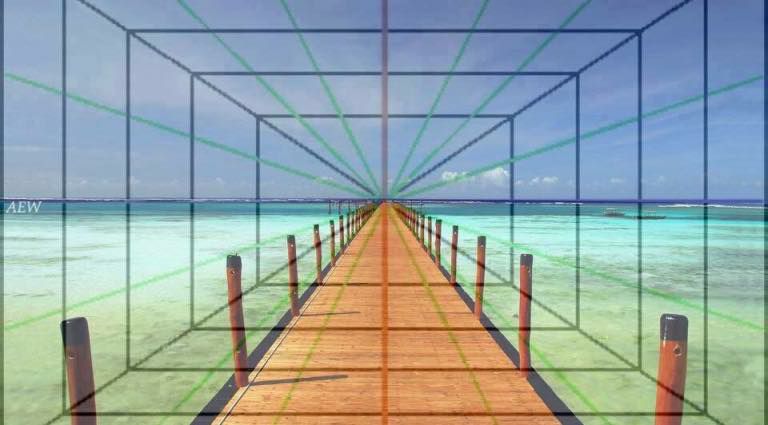#8──巨大的瘙癢──The Great Itch
English version at the bottom of this page
第一部分:創世記的記載
三、第四天:第八章 巨大的瘙癢
我是帶著一些幽默感來介紹將太陽製作成「巨大的瘙癢」。《聖經》中三次提到95 「太陽」的希伯來語是 「希列斯 (Cherec)」,讀作 “Kheh-res”96,其字面意思是「癢」,我覺得這比英語中用來描述它的任何一個詞都更具描述性。我在陽光下鍛煉過。汗水使你發癢,昆蟲被你吸引,你的眼睛疼痛,你的皮膚緊縮。這是一個很好的描述詞,我欣賞這個名字的詩意。在《舊約》中的其他大多數時候,它被賦予了一個專有名詞:「舍梅什 (Shemesh)」。在《創世記》中,它沒有專有名詞,只有「大光」,或更具體的希伯來文:梅爾.加多爾 (Meor Gadol) 。 97
這就是天空中刺眼的火球。神的更大的光,來統治這一天。上帝對此也是非常清楚和具體的。創世記1:14告訴我們:「要在天穹上有光… 」而不是像這樣:「讓我剛創造的地球在銀河系中環繞太陽。」不是的。聖經特別說, 更大的光在天穹裡面。這在整個聖經中可以清楚地看到是一個反覆出現的模式。根據聖經,太陽繞著地球98轉了一圈,而不是反過來。摩西僅在摩西五經中就記錄了15次99,更不用說在舊約中還有大約50次,包括律法、歷史、詩歌和先知書;這使得「日落」和「日出」在整個 塔納赫 (Tanakh) 中成為絕對的動態物理規律。詩篇119篇的詩人也不會忘記這樣的事情。「你話的總綱是真實.你一切公義的典章是永遠長存。」太陽在地球上來回冒險的規則已經由上帝的話語確立,在所有的部門、所有的地方… 這使得它成為神學上「持續的法律」或「管理理念系統」的最完美的例子之一。某種程度上是這樣的。「上帝是神聖的」和「罪是壞的」。如果在一組經文中涉及到,那就是道。但讓它不斷重複,就超出了純神學的範疇。很像在一本好的參考書中。內容中提到了一些東西,有一章是關於它的,它有一個適當的書目, 在索引中也提到了它。你不得不說,無論提出什麼概念都是這本書的一部分。它存在於每一個部分… 你不能忽視它… 但我想說的是…
人們說,太陽是什麼?僅僅是一顆星星?幾十億顆中的一顆?這顆黃色的星星在宇宙中漫無目的地漂浮,走在一些神秘的道路上,只有那些名字後面有一長串字母的人才知道。科學家把我們的太陽每天的行進稱為「日徑」,每年的行進稱為「黃道」。我們這些遵循聖經教義的人同意「白晝之路」的觀點,因為很明顯,太陽確實在天空中移動。我們不能同意的是太陽拉著地球繞著它做圓周運動的想法。我們不能同意太陽在宇宙中移動的說法,我們不能同意任何類似的說法,因為沒有更大的「宇宙」。地球就是宇宙。太陽在地球的蒼穹之中,月亮、星星和「行星」也是如此。認為地球之外還有其他東西的想法幾乎是反聖經的,但不完全是。穹蒼之外是有東西的, 但我們將在另一章討論它們。地球是不可移動的100。地球就是宇宙 101。
那麼,太陽是什麼?它像天體物理學家所說的那樣嗎?它只是離地球最近的星星嗎?還是它是天空中唯一的太陽?它根本就是一顆黃色的恆星?它有幾億年的歷史嗎?還是它只有不到6000年的歷史?為了讓我們理解我們的聖經,我們必須相信我們的聖經。為了相信我們的聖經,我們必須知道它說了什麼。神說:「天穹上要有光,分出晝夜來;要作記號,作時節,作日子,作年月。又要在天穹上作光,照亮地上。神又造了兩道大光,大光管晝,小光管夜,又造了眾星。神把它們安置在天穹上,照亮大地,管理晝夜,分出光明和黑暗來,神看這是好的。晚上和早晨是第四日。」102然後呢?上帝在天空中製造了小光,這樣我們就可以保持時間。太陽代表白天,月亮代表夜晚,星星代表月份。從上下文來看,這似乎是不言自明的。103
最近,我在網上參加了許多對話,人們把日蝕等說成是由第三個甚至第四個天體造成的… 拉胡 (Rahu)、尼瑪斯 (Nemesis)、尼布魯 (Niburu),甚至是第二個月亮104。我不能說這與經文中的第16節a和b相吻合。「神造了兩道大光,大光管晝,小光管夜… 」──只有兩道大光。一個是統治105白天的(太陽),一個是統治夜晚的( 月亮)。第16節c部分提到的星星是用來定義太陽和月亮不能定義的。月亮和季節。這就是創世記中所描述的全部內容。根據聖經,沒有彗星、小行星、行星、其他太陽、黑洞等。這裡有太陽、有月亮、有星星──它們在那裡提供光線。它們的存在是為了告訴人們時間。上帝看到它是好的。這對上帝來說已經足夠好了。這對我來說也足夠好了。我們不需要發明我們看不到的東西。我們觀察那些被看到的東西。經驗性的證據每次都勝過理論。 在舊約中,有很多經文提到太陽的名字:「舍梅什 (Shemesh)」。106這個希伯來語詞根是一個未使用的詞,意思很簡單:「太陽」。它在《舊約》中被使用了134次,在幾個世紀的使用中反覆出現。甚至舊約中最聰明的人所羅門在《傳道書》中也是這樣寫的,他提到了 舍梅什 (Shemesh):「日頭出來、日頭落下、急歸所出之地。」107《舊約》中共有67節經文使用了太陽升起或落下的短語。令人沮喪的是,這種措辭已經丟失。因為從字面上看,太陽並沒有上升或下降,而是如所羅門所說:「出來」。約書亞記、士師記、撒母耳記、列王記、歷代志上和下、約伯記、詩篇和先知書中的作者使用的這個詞是:「博 (bo)」108,它包含了太陽越來越近而不是上升的意思。這比它的引力意義更具有透視意義。但是,從透視的角度來看,當任何東西越來越接近地平線時,如果它高於眼睛的水平,它似乎就會下降。地平線是「地球表面和天空看起來相交的那條線」。太陽並沒有下降,它與地球表面的距離似乎是越來越遠,在一天中越來越遠。109


註
95 士官長8:13,士官長14:18,以及約伯記9:7
96 Strong’s 2775 – ֶחֶרֶס
97 הַמָּא֤וֹר הַגָּדֹל֙ 意思是「更大的光」- 創世記1:16, Strong’s words 1419 and 3974
98 關於這些短語的更多說明,請參見前面的章節。
99 創世記 15:12,創世記 15:17,創世記 19:23,創世記 28:11,創世記 32:31,出埃及記 17:12,出埃及記 22:3。出埃及記 22:26,利未記 22:7,民數記 2:3,申命記 11:30,申命記 16:6,申命記 23:11,申命記 24:13,及申命記 24:15
100 歷代志上16:30, 詩篇33:9, 詩篇93:1, 詩篇96:10, 詩篇104:5, 詩篇119:89-90, 以賽亞
14:7, 以賽亞45:18, 撒迦利亞1:11
101 撒母耳記上 2:8,約伯記 9:6,約伯記 26:7,詩篇 75:3,彼得後書 3:5
102 創世記 1:14-19 KJV
103我對《聖經》中的農曆和農曆安息日(Sabbath)進行了一段時間的挖掘。每種說法都有正反兩面,但我還沒有下定決心,哪種模式是正確的。我們就不談這個了。月亮的存在是為了顯示時間。很好!已經解決了很多神秘的問題!
104 小行星2016 HO3, Gizmodo.com – 地球的新月仍會堅持幾個世紀
105 來自KJV第c部分宣告著:「祂還創造了星星。」但這是可笑的補充,因為蒼穹中的星星遠不及大地上另外兩顆天然衛星的能量。
106 Strong’s 8121 -ֶ שֶׁמֶשׁ , 日光,東邊,太陽,日落,日出,城垛
107 傳道書1:5,重新翻譯。大多數版本用 「返回 」來表示希伯來語中「渴望的褲子」的意思。
108 Strong’s 935, ּבּוֹא, 來、進來、回來
109 谷歌詞典,第一個定義。
購買英文版 Buy the book online: Biblical Cosmology Paperback
Part One: The Genesis Account
III: Fourth Day──Chapter 8: The Great Itch
It is with some humor that I introduce the making of the Sun as “The great itch.” Three times in the Bible1 the Hebrew word for “Sun” is “Cherec” pronounced “Kheh-res”2 and it literally means: “Itch,” which I find more descriptive than any word used to describe it in English. I’ve worked out in the sunshine. The sweat tickles you, the insects are drawn to you, your eyes ache and your skin tightens. It’s a great descriptor, and I appreciate the poetry of the name. Most other times in the Old Testament, it is given a proper name: “Shemesh.” In Genesis, it has no proper name, only “The Greater Light,” or more specifically in Hebrew: “Meor Gadol.”3
This is the blinding ball of fire in the sky. God’s greater light to rule the day. God is very clear and specific about it as well. Genesis 1:14 tells us: “Let there be lights in the firmament of the heavens…” Not something like: “Let the earth I’ve just created circle the sun in the galaxy.” Nope. The Bible specifically says that the greater light is inside the firmament of the heavens.4 This is clearly seen as a recurring pattern throughout Scripture. According to the Bible, the sun moves around the earth in a circle, not the other way around. Moses records fifteen instances of this alone in the Pentateuch,5 not to mention around 50 other times in the Old Testament, including the Law, History, Poetry, and Prophets; This makes “Sunset” and “Sunrise” absolute as a dynamic physical law in the entire Tanakh. Something like this is not lost on the Psalmist of Psalm 119. “The sum of your word is truth, and every one of your righteous rules endures forever.” The rule of the sun to venture to and fro over the earth has been established by God’s Word, in all divisions, in all parts… This makes it one of the most perfect examples of a “continuing law” or “governing idea system” theologically. Somewhere along the lines of: “God is holy” and “Sin is bad.” If it is covered in one group of scripture, it’s the Word… But to have it continuously repeated is beyond pure theology. Much like in a good reference book. Something is mentioned in the contents, there is a chapter about it, it has a proper bibliography, and there is mention of it in the index. You would have to say that whatever concept presented was part of the book. There it was in every part… You could not ignore it… But I digress…
What do people say that the sun is? Simply a star? One amongst zillions? This yellow star floating aimlessly thru the cosmos on some mystical path known only to those with a long list of letters after their name. Scientists call the daily march of our Sun “The Day Path” and the yearly march, “The Ecliptic.” We, who follow the teachings of the Bible agree with the idea of a “Day Path” because obviously, the sun does indeed move around the sky. What we cannot agree with is the idea of a sun who pulls the earth around it in a circular motion. We cannot agree that the sun moves thru the cosmos, we cannot agree with anything of the like because there is no greater “cosmos.” The earth is the cosmos. The sun is inside the firmament of earth, as are the moon, and stars, and “planets.” The idea that there is anything else outside the earth is almost anti-Biblical, but not quite. There are things outside of the firmament but we will discuss them in another chapter. Earth is immovable.6 Earth is the cosmos.7
So then, what is the sun? Is it like astrophysicists say? Is it simply earth’s closest star? Or is it the only sun in the sky? It is a yellow star at all? Is it hundreds of millions of years old? Or is it a little less than 6,000 years old? In order for us to understand our Bible we have to believe our Bible. In order to believe our Bible we have to know what it says. “And God said, Let there be lights in the firmament of the heaven to divide the day from the night; and let them be for signs, and for seasons, and for days, and years: And let them be for lights in the firmament of the heaven to give light upon the earth: and it was so. And God made two great lights; the greater light to rule the day, and the lesser light to rule the night: he made the stars also. And God set them in the firmament of the heaven to give light upon the earth, and to rule over the day and over the night, and to divide the light from the darkness: and God saw that it was good. And the evening and the morning were the fourth day.”8 What then? God made little lights in the sky, so we could keep time. The sun for the day, the moon for the night, and the stars for the months. Seems pretty self-explanatory in context.9
Recently, I have been part of many conversations online where people are pronouncing eclipses and the like as being made by a third or even fourth heavenly body… Rahu, Nemesis, Niburu, or even a second moon.10 I cannot say that this jives with the Scripture, in verse 16 a&b: “And God made two great lights; the greater light to rule the day, and the lesser light to rule the night…”11 There are only two great lights. The one to rule the day (Sun) and the one to rule the night (Moon). The stars mentioned at part c of verse 16 are there to define what the Sun and Moon cannot: Months and Seasons. That is all that is described in Genesis. Biblically, there are no comets, asteroids, planets, other suns, black holes, etc. There is the Sun. There is the Moon. There are the Stars. They are there to give light. They are there to tell time. God saw that it was good. That’s good enough for God. That’s good enough for me. We don’t have to invent things we cannot see. We observe things that are seen. Empirical evidence trumps theories every time.
There are verses galore in the Old Testament referring to the Sun by its name: “Shemesh.”12 This root Hebrew word is an unused word that simply means: “Sun.” It is used 134 times in the Old Testament and it reoccurs throughout the centuries of usage.
Even Solomon, wisest man in the Old Testament, writes of it in Ecclesiastes this way, referring to Shemesh: “Also comes forth the sun, then goes in the sun: towards its place. It pants longingly to return to where it came from.”13 There are a total of 67 verses in the Old Testament that use the phrases of the Sun coming up or going down. It is frustrating to note that this phraseology has become lost. For the Sun does not literally go up nor down, but, as Solomon says: “comes forth.” This word used by the writers in Joshua, Judges, 1 Samuel, 1 Kings, 1 and 2 Chronicles, Job, Psalms and the prophets is the word: “bo”14 and it carries with it the idea that the Sun gets nearer, not rises. This makes perspective sense more than it makes gravitational sense. But, in perspective, as anything gets closer to the horizon, if it is above eye level, it does seem to go down. Horizon is “the line at which the earth’s surface and the sky appear to meet.”15 The sun does not go down, it meets the earth’s surface seemingly as it gets farther away, further into the day.


Footnotes
1 Judges 8:13, Judges 14:18, & Job 9:7
2 Strong’s 2775 – ֶֶחֶרֶס
3 הַמָּא֤וֹר הַגָּדֹל֙ Which means “the greater light” Genesis 1:16, Strong’s
words 1419 and 3974
4 Please see previous chapters for more clarity on these phrases.
5 Genesis 15:12, Genesis 15:17, Genesis 19:23, Genesis 28:11, Genesis 32:31, Exodus 17:12, Exodus 22:3. Exodus 22:26, Leviticus 22:7, Numbers 2:3, Deuteronomy 11:30, Deuteronomy 16:6, Deuteronomy 23:11, Deuteronomy 24:13, & Deuteronomy 24:15
6 1 Chronicles 16:30, Psalm 33:9, Psalm 93:1, Psalm 96:10, Psalm 104:5, Psalm 119:89-90, Isaiah 14:7, Isaiah 45:18, Zechariah 1:11
7 1 Samuel 2:8, Job 9:6, Job 26:7, Psalm 75:3, 2 Peter 3:5
8 Genesis 1:14-19 KJV
9 I’ve been digging into the Biblical Lunar Calendar and Lunar Shabbat (Sabbath) for a while now. There are pros and cons in every argument, but I have yet to make up my mind about which model is correct. Let’s just leave it at that. The moon exists to tell time. Great! Solves a lot of mystery already!
10 Asteroid 2016 HO3, Gizmodo.com – Earth’s new quasi moon will stick around for centuries
11 From the KJV. Part c declares: “he made the stars also.” But this is ludicrous to add because stars in the firmament are nowhere near the power of earth’s two only other natural satellites.
12 Strong’s 8121 – שֶׁמֶשׁ , Daylight, East side, Sun, Sunset, Sunrise, Battlement
13 Ecclesiastes 1:5, retranslated. Most versions use “return” for the Hebrew idea of “pants longingly.”
14 Strong’s 935, ּבֹוא, Come, to come, to come in, to go, to go into, came, enter into, return.
15 Google Dictionary, first definition.
──Biblical Cosmology by Pauly Hart
Permission for VineMedia to use
Buy the book online: Biblical Cosmology Paperback
見證

丟棄萬事 得著基督──FORMER MAFIA BOSS BECAME A FOLLOWER OF JESUS CHRIST
黑社會大佬信耶穌?當神帶他去了地獄與天堂,便震撼地起了天翻地覆的改變…在人不能,在神凡事都能…
支 持 我 們
# TAG
EN English flat earth MONDAY MANNA 以色列 以色列新聞 你累了嗎 保捷 信仰見證 出埃及記 利未記 創世記 劉國偉 原文解經 國度禾場KHM 地平 地平論 天人之聲 天堂 奇妙的創造 妥拉 妥拉人生 市井心靈 平地球 張哈拿牧師 敬拜 智慧 梁永善牧師 民數記 清晨妥拉 清晨妥拉2.0 漫畫事件簿 為以色列代禱 琴與爐 申命記 知識 研經課程 箴言 聖經 聖經宇宙學 蘇義德牧師 見證 週一嗎哪 陳芳齡 靈修



